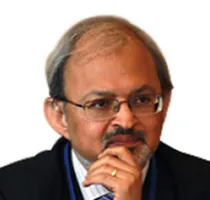-
CENTRES
Progammes & Centres
Location

ORF Fellow Nikhila Natarajan sits down for a Q&A with Director Sunjoy Joshi.
Nikhila Natarajan: The election 2016, as it unfolds, is unprecedented. What are the issues that the new president needs to address? Sunjoy Joshi: Following a contentious no-holds barred campaign which saw both sides adopt deeply adversarial positions, a long list of perceptional challenges have been added to the real challenges that confront the next US President in January 2017. One of the first tasks of the new presidency will be to clear the flotsam and jetsam, the detritus of a brutal campaign. Campaign over, the world will seek demonstrable leadership and precise communication that can underline, state and where necessary, restate US policy as well as its position on global issues, and revitalise its engagements with its partners. The new presidency thus needs to clearly re-imagine and re-articulate the role of the US in the world. If it is to remain one of its pillars it will need to convince various constituencies at home as well as across the world that the US is not in retreat, harbouring hopes of reverting to becoming a quasi-hegemon, engaging only on limited matters. It will need to recommit itself to remaining a key player in global security, upholding the sanctity of global trading regimes, and committed to the global management of common spaces such as the environment, the seas, near as well as outer space, and the cyber sphere, amongst others.NN: Following President Obama's legacy, what are the challenges that lie ahead?
SJ: Many stubborn challenges, the gifts of legacy, continue to fester. The most pressing of these are Islamic terrorism and the civil wars in Iraq and Syria. The Islamic State (IS), even though in retreat in its declared geography, continues to retain the capacity to operate across borders and to sponsor terror attacks in Asia, Europe and the US. The US finds itself mired in a complex three-cornered fight supporting moderate groups against the Islamic State as well as against the Syrian-Russian-Iranian forces where it is becoming increasingly difficult to clearly separate the shifting agendas of different warring factions. There can be no Faustian bargain here.NN: One of the critical aspects during Obama's tenure has been the Middle East. What in your opinion is the new president’s role for peacekeeping in the region and around the world?
SJ: The US has no choice but to ensure that the Islamic State is defeated in Iraq and Syria, its supporters and funding sources are decimated and the ideology is also delegitimised in the minds of its adherents.NN: What about China?
SJ: In the Indo-Pacific, China’s aggressiveness will require deft handling. Any weakening of American resolve could force smaller East Asian states to seek accommodation with China, while openly aggressive behaviour could potentially escalate tensions between the main powers in the region. The new president will need to deal with the longer-term challenge presented by China’s rise. The good news is that the Indian-American partnership in the Asia-Pacific is now real, strengthening and enjoys secular political support in both countries. It will be important to restate this strengthening partnership immediately without loss of time or ground.NN: And the Indian sub-continent?
SJ: Add to these the medley of regional problems posed by an irrational and nuclear Pakistan, the looming North Korean nuclear threat, elusive peace in Afghanistan and the perennial Palestine-Israeli dispute — the new Presidency is assured of more than a plateful.The views expressed above belong to the author(s). ORF research and analyses now available on Telegram! Click here to access our curated content — blogs, longforms and interviews.

Sunjoy Joshi has a Master’s Degree in English Literature from Allahabad University, India, as well as in Development Studies from University of East Anglia, Norwich. ...
Read More +